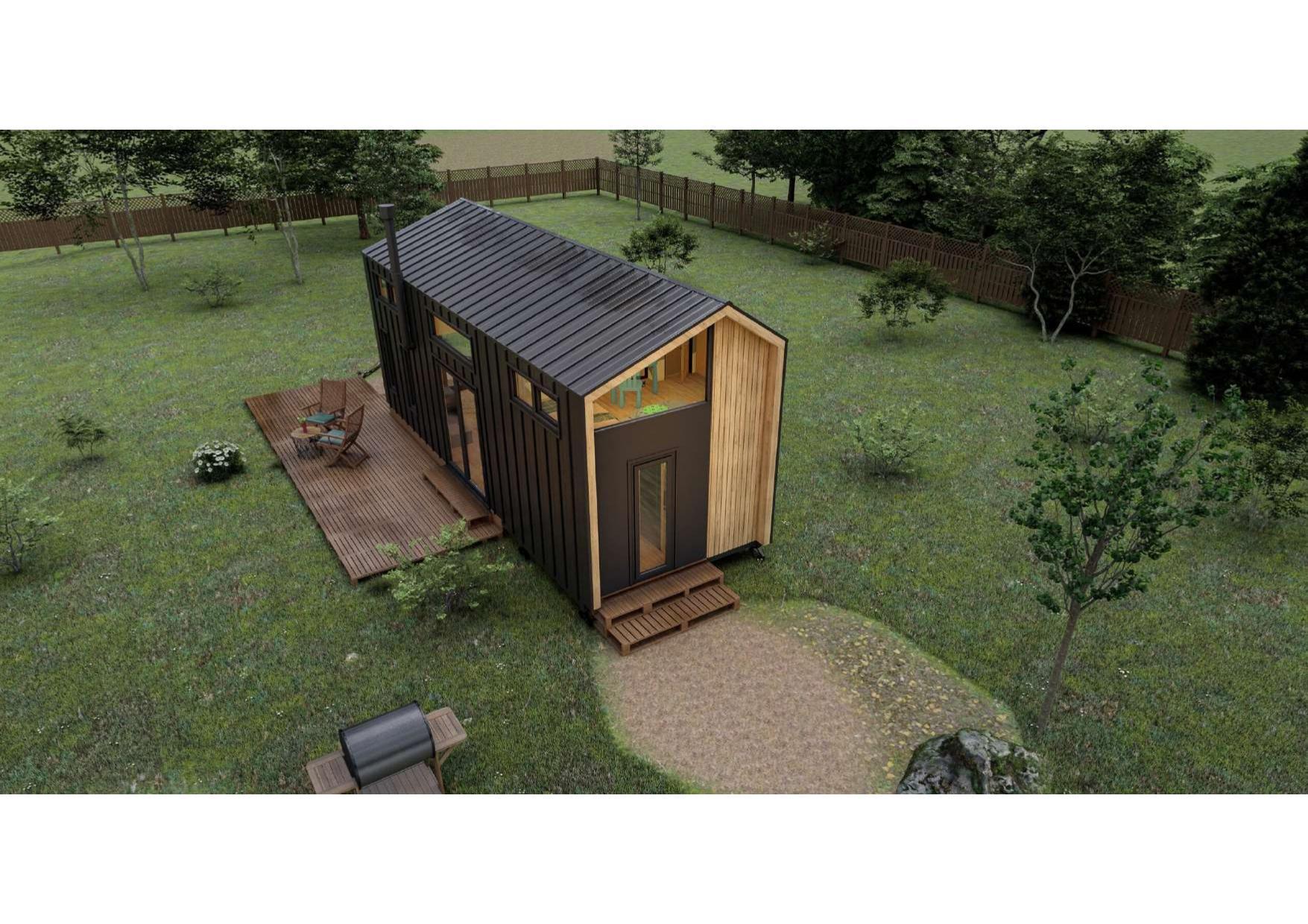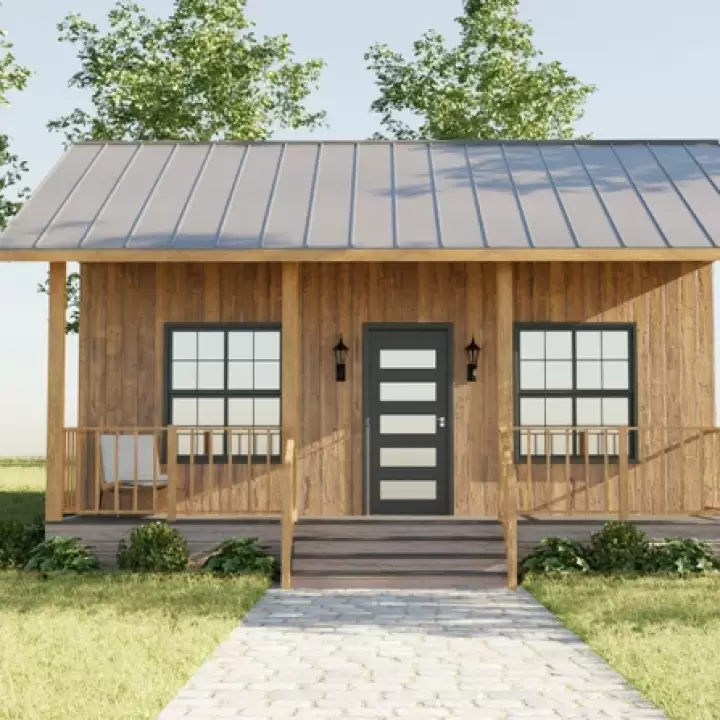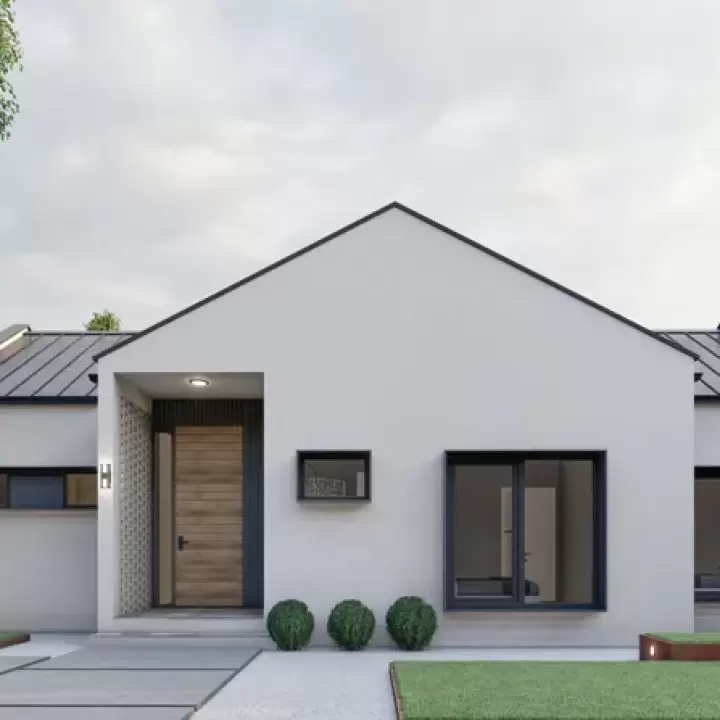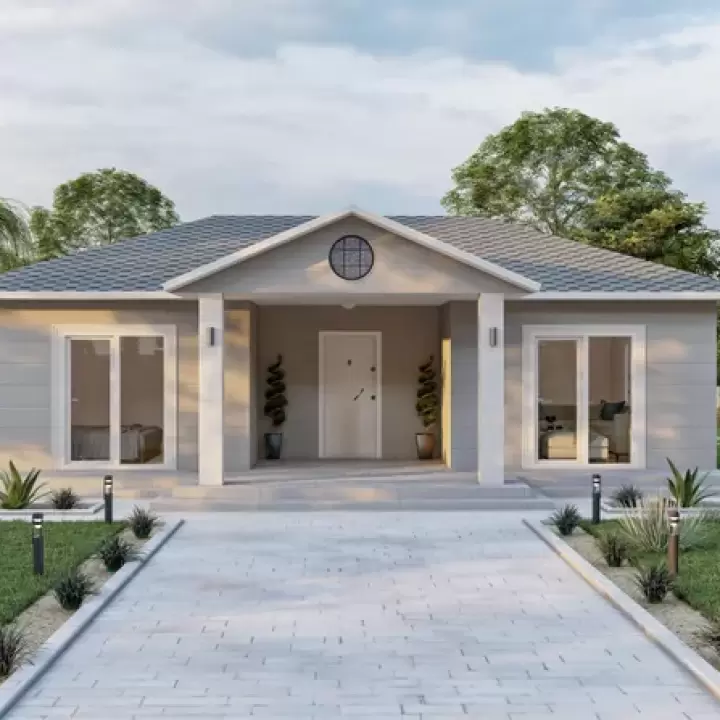
The Future of Compact Living: Best Small House Plans for Every Budget
In today's fast-paced world, the demand for small and efficient living spaces is growing rapidly. Whether you're looking for a budget-friendly starter home, a vacation retreat, or simply want to embrace a minimalist lifestyle, small house plans offer an attractive solution. These plans are designed to maximize space, functionality, and comfort, making them ideal for modern living. In this article, we explore the benefits of compact homes and present some of the best small house plans that cater to various budgets.
Why Choose Small House Plans?
1. Affordability
One of the primary reasons people opt for small house plans is cost savings. Building a smaller home is significantly more affordable than constructing a large one. The reduced size translates to lower construction costs, fewer materials, and less labor. Additionally, smaller homes typically have lower utility bills, making them more cost-efficient to maintain in the long run.
2. Sustainability
Smaller homes have a smaller environmental footprint. They require fewer resources to build and consume less energy for heating, cooling, and lighting. Many small house plans also incorporate eco-friendly features like energy-efficient windows, solar panels, and sustainable building materials, making them an excellent choice for environmentally-conscious homeowners.
3. Low Maintenance
With less space to clean and fewer rooms to manage, small homes are easier to maintain. This allows homeowners to spend less time on upkeep and more time enjoying their living space. The simplicity of a small home also means fewer repairs and maintenance expenses over time.
4. Flexibility and Versatility
Small house plans often feature open layouts, which allow for versatile use of space. This flexibility makes it easy to reconfigure rooms or adapt the layout to your changing needs. For instance, a living room can double as a workspace, or a spare bedroom can be transformed into a home office.
5. Cozy Living Environment
Small homes create a cozy and intimate atmosphere. With less space to fill, homeowners can focus on creating a warm, inviting environment that reflects their personal style. Whether it's through the use of natural materials, thoughtful design, or clever storage solutions, small house plans foster a sense of comfort and well-being.
Spacious and Versatile Home Design
One of the standout features of modern small house plans is their ability to make the most of limited space without sacrificing comfort or functionality. Let's dive into an example of a well-designed small home that covers just 46.55 m² (501 sq.ft) yet offers spacious living areas, multiple bedrooms, and outdoor living space.
Ground Floor Layout
The ground floor of this home spans 28.00 m² (301.40 sq.ft), offering a variety of practical and functional spaces:
Kitchen + Living Room: This open area covers 16.85 m² (181.40 sq.ft) and is designed to serve as the heart of the home. With dimensions of 5.10 x 3.30 meters (16'-8" x 10'-10"), the space is large enough to accommodate both a fully-equipped kitchen and a comfortable living room. This layout allows for easy interaction between cooking, dining, and relaxing, making it perfect for entertaining guests or enjoying family time.
Bathroom: A compact yet functional 3.30 m² (35.50 sq.ft) bathroom is tucked away on the ground floor. Measuring 1.90 x 1.75 meters (6'-3" x 5'-9"), it provides all the essential amenities, including a shower, toilet, and sink, while maintaining a small footprint.
Porch: One of the most appealing aspects of this design is the generous porch, which covers 20.25 m² (218 sq.ft). With dimensions of 8.10 x 2.50 meters (26'-7" x 8'-2"), this outdoor space offers a perfect spot for relaxation, dining, or enjoying the fresh air. The porch effectively extends the living area, creating a seamless transition between indoor and outdoor spaces.
Hall: A 2.90 m² (31.20 sq.ft) hall connects the various areas of the home and provides easy access to the porch, bathroom, and kitchen/living area. Measuring 2.00 x 1.45 meters (6'-7" x 4'-9"), the hall ensures smooth traffic flow throughout the house.
First Floor Layout
The first floor adds another 18.70 m² (201.10 sq.ft) of living space, primarily dedicated to bedrooms:
Bedroom: The first bedroom covers 6.30 m² (67.80 sq.ft) with dimensions of 1.90 x 3.30 meters (6'-3" x 10'-10"). Though compact, it provides enough space for a bed, wardrobe, and nightstand, making it a cozy retreat for restful nights.
Master Bedroom: Slightly smaller than the first bedroom, the master bedroom measures 6.10 m² (65.65 sq.ft) and features dimensions of 2.30 x 2.65 meters (7'-6" x 8'-8"). Its cozy size creates a snug, private sleeping area, perfect for winding down after a long day.
Hall 2: The second-floor hall covers 3.30 m² (35.50 sq.ft) and provides access to both bedrooms. Measuring 5.10 x 0.65 meters (16'-8" x 2'-2"), this narrow hall maximizes space efficiency while maintaining smooth traffic flow.
House Features
This compact house design is built with practicality and functionality in mind:
Building Dimensions: 8.00 x 3.50 meters (26'-3" x 11'-6")
Foundation: Wooden
Ground Floor Height: 2.50 meters (8'-6")
First Floor Height: 1.10 meters (3'-7")
Total Height: 5.20 meters (17'-1")
Total Area: 46.55 m² (501 sq.ft)
This home offers a balance of space and versatility, making it a perfect option for individuals or small families. With a large porch, well-planned living areas, and multiple bedrooms, it accommodates a wide range of lifestyles and needs.
How to Choose the Best Small House Plan for Your Budget
1. Evaluate Your Needs
Before selecting a house plan, it's essential to assess your specific needs. Consider the number of people who will be living in the house, how much space you need for daily activities, and any special requirements (e.g., home office, guest room). By identifying your must-haves, you can choose a plan that fits your lifestyle without overcommitting to unnecessary features.
2. Budget-Friendly Features
Look for house plans that incorporate cost-effective design elements. For example, open floor plans reduce the need for extra walls and doors, lowering construction costs. Additionally, energy-efficient features like proper insulation, double-glazed windows, and efficient heating/cooling systems can save you money in the long term.
3. Maximize Space Efficiency
Smaller homes require clever space-saving solutions. Opt for designs that make use of vertical space, incorporate built-in storage, and prioritize multi-functional rooms. For instance, a living room that doubles as a home office or a kitchen with an integrated dining area can reduce the need for additional rooms and maximize the utility of your living space.
4. Customization
Many house plans offer the option for customization. This allows you to make adjustments to the layout, size, or features to suit your preferences. Whether you want to add a garage, expand a bedroom, or modify the porch, customizing a plan can help you create your dream home within your budget.
 Español
Español  Français
Français  Português
Português  Deutsch
Deutsch  Italiano
Italiano  Русский
Русский  日本語
日本語  中文 (中国)
中文 (中国) 




